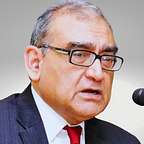Caste Discrimination: Beyond Laws and Borders, India’s Path to Eradication
The Law’s Limitation on Caste Discrimination
I refrain from delving into the Governor’s reasoning behind vetoing the bill. What I firmly posit is that laws alone cannot root out caste discrimination. If passed, these laws may exist merely on paper, and worse, force caste practices to become more concealed and deceptive.
Potential Risks and Misuse
A likely side effect? An influx of unfounded accusations of discrimination from individuals identifying as ‘lower caste’.
Understanding India’s Caste Dynamics
Before we dissect this further, it’s crucial to comprehend the depth and history of India’s caste system.
In the linked piece, I elucidate the evolution of caste. Likely beginning on racial lines, it morphed into a feudal division based on occupation. Over centuries, its tentacles have entrenched deeply into India’s social fabric. A significant portion of the electorate casts votes based on caste, disregarding candidate qualifications.
Casteism Abroad
Reflecting Indian Roots The emigrating Indian populace often transfers its caste-oriented mindset overseas. Caste-driven organizations flourish even in places like the US. Eradicating casteism abroad necessitates its obliteration in its origin — India.
The Path to Caste Eradication Industrialization
Identifying caste as a remnant of feudalism, it’s evident that India, in its semi-feudal state, cannot truly break free from it. The solution? Transform India into an industrially advanced and modern nation. Is that feasible?
In my video interview with Moeed Pirzada, a respected Pakistani journalist, I discuss the barriers posed by developed nations to prevent underdeveloped countries like India from industrial progression.
For India, industrialization is non-negotiable. Only through it can we address grave issues such as poverty, unemployment, child malnutrition, and the absence of adequate healthcare and education. Developed nations’ interests clash with our aspirations.
Democratic Dilemma
Caste and Politics India’s chosen parliamentary democratic system, sadly, leans heavily on caste and communal vote banks, inadvertently reinforcing these feudal remnants. Progress requires their annihilation.
Breaking the Stalemate
A People’s Movement What’s Our Way Out? A monumental, united people’s movement led by visionary, nationalistic leaders. This won’t be an overnight transformation; it demands time, effort, and immense sacrifice. Predicting its trajectory, its leaders, or its duration is a futile exercise. We must let history and innovation dictate.
In Conclusion
Real Change, Not Symbolic Gestures Anti-caste laws introduced in America will remain mere tokens. True change necessitates eradicating casteism in India via a widespread people’s uprising.
